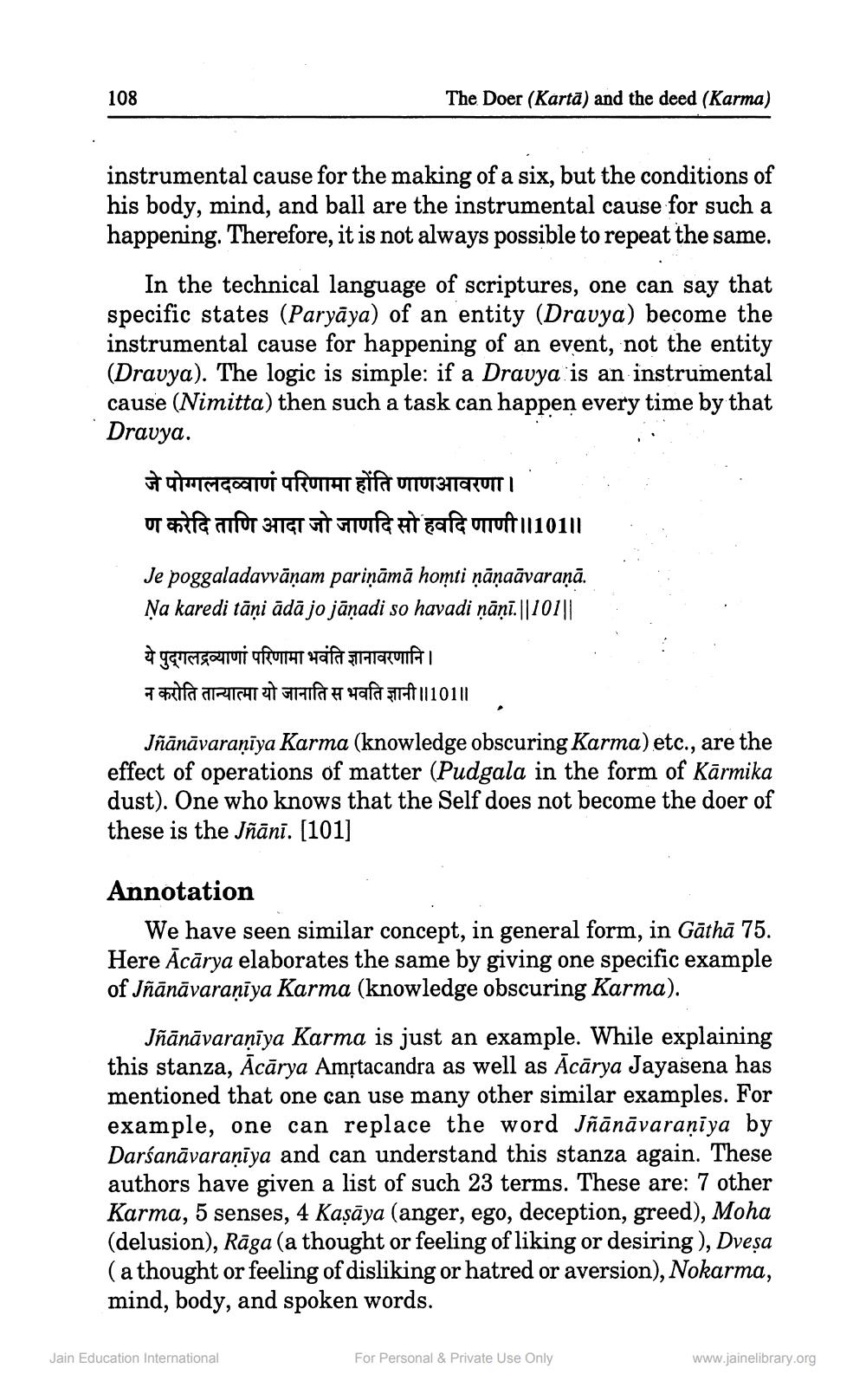________________
108
The Doer (Karta) and the deed (Karma)
instrumental cause for the making of a six, but the conditions of his body, mind, and ball are the instrumental cause for such a happening. Therefore, it is not always possible to repeat the same.
In the technical language of scriptures, one can say that specific states (Paryaya) of an entity (Dravya) become the instrumental cause for happening of an event, not the entity (Dravya). The logic is simple: if a Dravya is an instrumental cause (Nimitta) then such a task can happen every time by that Dravya.
जे पोग्गलदव्वाणं परिणामा होंति णाणआवरणा ।
or afe anfor sngt et enuft at gafe uft1011
Je poggaladavvāṇam pariņāmā homti ṇāṇaāvaraṇā. Ṇa karedi tāņi ādā jo jāṇadi so havadi ṇāṇī.||101||
ये पुद्गलद्रव्याणां परिणामा भवंति ज्ञानावरणानि ।
न करोति तान्यात्मा यो जानाति स भवति ज्ञानी ॥ 101॥
Jñānāvaraṇīya Karma (knowledge obscuring Karma) etc., are the effect of operations of matter (Pudgala in the form of Kārmika dust). One who knows that the Self does not become the doer of these is the Jñānī. [101]
Annotation
We have seen similar concept, in general form, in Gāthā 75. Here Acārya elaborates the same by giving one specific example of Jñānāvaraṇīya Karma (knowledge obscuring Karma).
Jñānāvaraṇīya Karma is just an example. While explaining this stanza, Ācārya Amṛtacandra as well as Acārya Jayasena has mentioned that one can use many other similar examples. For example, one can replace the word Jñānāvaraṇīya by Darśanavaraṇīya and can understand this stanza again. These authors have given a list of such 23 terms. These are: 7 other Karma, 5 senses, 4 Kaṣāya (anger, ego, deception, greed), Moha (delusion), Raga (a thought or feeling of liking or desiring), Dveşa (a thought or feeling of disliking or hatred or aversion), Nokarma, mind, body, and spoken words.
Jain Education International
For Personal & Private Use Only
www.jainelibrary.org




